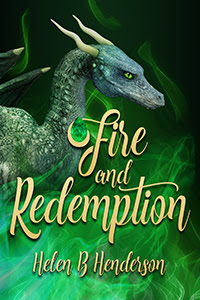Title: Sunday’s Child
(Heroines Born on Different Days of the Week Book 1)
Author: Rosemary Morris
 Date of Release: September 4th, 2016
Date of Release: September 4th, 2016Genre: Regency Romance
Publisher: Books We Love
Buy Links: amazon.com
Blurb:
Georgianne Whitley’s beloved father and brothers died in the war against Napoleon Bonaparte. While she grieves for them, she must deal with her unpredictable mother’s sorrow, and her younger sisters’ situation.
Georgianne’s problems increase when the arrogant, wealthy but elderly Earl of Pennington, proposes marriage to her for the sole purpose of being provided with an heir. At first she is tempted by his offer, but something is not quite right about him. She rejects him, not suspecting it will lead to unwelcome repercussions.
Once, Georgianne had wanted to marry an army officer. Now, she decides never to marry ‘a military man’ for fear he will be killed on the battlefield. However, Georgianne still dreams of a happy marriage before unexpected violence forces her to relinquish the chance to participate in a London Season sponsored by her aunt.
Shocked and in pain, Georgianne goes to the inn where her cousin Sarah’s step-brother, Rupert, Major Tarrant, is staying, while waiting for the blacksmith to return to the village and shoe his horse. Recently, she has been reacquainted with Tarrant—whom she knew when in the nursery—at the vicarage where Sarah lives with her husband Reverend Stanton.
The war in the Iberian Peninsula is nearly at an end so, after his older brother’s death, Tarrant, who was wounded, returns to England where his father asks him to marry and produce an heir.
To please his father, Tarrant agrees to marry, but due to a personal tragedy has decided never to father a child.
When Georgianne arrives at the inn, quixotic Tarrant sympathises with her unhappy situation. Moreover, he is shocked by the unforgivable brutal treatment she has suffered. Full of admiration for her beauty and courage he decides to help Georgianne.
Behind the Scenes: In order not to merely skim the surface of the Regency era in Sunday’s Child, I immersed myself in historical facts.
After I read a non-fiction book about the Napoleonic Wars, I wondered how men, who served under the Duke of Wellington, coped with post-traumatic stress, a condition not recognised at that time. After much thought, I filled in a detailed character profile for Rupert, Major Tarrant, an officer and a gentleman haunted by tragedy.
Aware of the position of unmarried, upper-class girls totally dependent on their families, my imagination gave birth the heroine, altruistic eighteen-year old Georgianne Whitley, who makes a sacrifice for her younger sisters.
By the way, my characters are shy so they keep their bedroom doors closed so there is no explicit sex in Sunday’s Child.
Special Offer: Books We Love will send a free copy of the novel to anyone who will agree to review it on Amazon and, if possible, on GoodReads. Contact Rosemary at her website (rosemarymorris.co.uk) for more information.
Author Bio:
As I write historical fiction, I am fortunate to be only a 20-minute train journey from London, which offers endless possibilities for research about times past. Many things spark my imagination. One of them was an open bus tour around London. Amongst the sky scrapers and modern buildings Old London can be discovered, including the street that J.K.Rowling used as a model for Diagon Alley in her Harry Potter series.
For as long as I can remember, I enjoyed studying history, reading historical non-fiction, historical fiction and its sub-genres. Today, I enjoy novels in which the characters’ behaviour is appropriate for the era in which they live.
The more I read the more fascinated I become, and the more aware of the gulf between historical periods and my own. Our ancestors shared the same emotions as we do, but their attitudes and way of life were different. One of the most striking examples is the position of women and children in society in bygone ages.
The characters in my novels are of their time, not ones dressed in costume, who behave like 21st century women. Of course, it is almost impossible to completely understand our ancestors, who did things differently in the past, but through extensive research I ensure my protagonists observe the social etiquette of their lives and times.
Although my published novels are set in the early 18th century and the ever popular Regency era, I plan to write fiction set in other periods of history.
Apart from writing, I enjoy time with my family and friends, classical Indian literature, reading, vegetarian cooking, growing organic fruit, herbs and vegetables and creative crafts.
Find Rosemary on the web at: rosemarymorris.co.uk and on Facebook at facebook.com/writerinagarret1/.
















No comments:
Post a Comment
By posting a comment on this site, you agree with the site's Privacy Policy on how your data is stored and handled.